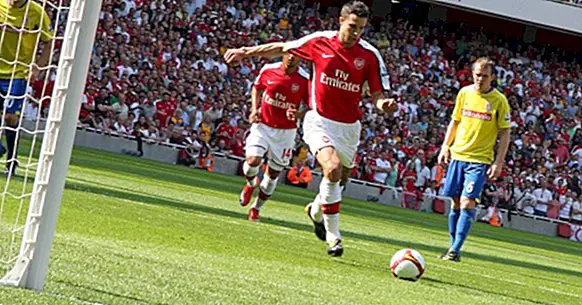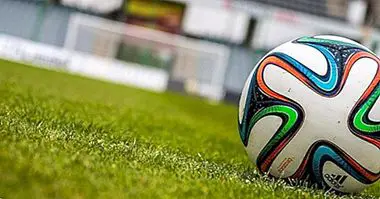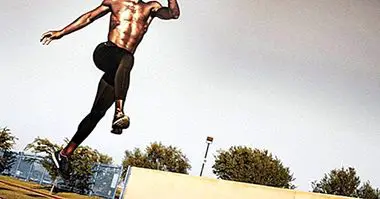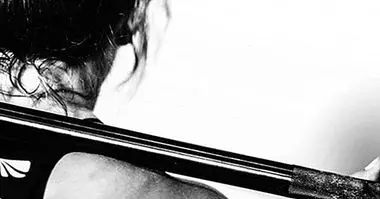Concentration on penalties
In any sport there are situations in which the importance of the psychological aspect becomes really remarkable. Penalties are a good example of this type of situation .
At the moment when players have to shoot penalties they usually feel under pressure, especially if penalties are decisive in the classification of a team within a championship. When feeling under pressure it is more complicated to be precise, because It is difficult to maintain an optimal level of concentration . That is why to have more opportunities to make a successful penalty you must train skills such as concentration.
- Related article: "10 reasons to put a sports psychologist in your life"
What is concentrating?
Knowing how to concentrate is knowing pay attention to what is really important at a certain moment. To master this skill you have to learn to differentiate the different focuses of attention, know how to change from one to another depending on the context, and regain concentration if you lose by some distraction.
The focus of attention can be internal (for example, on emotions, thoughts, or feelings of each) or external (for example, on the environment such as the public, the goal, or the ball). The amplitude of the focus can be wide (for example, if they are fixed in several aspects of the game) or narrow (for example, when they are fixed in a specific place inside the goal where they try to put the ball).
By bringing together the different focuses of attention, four types of attention control emerge: evaluation, analysis, preparation, and action. One way to improve the training of penalties is make players practice all these types so that they learn to use the most appropriate .
- Maybe you're interested: "9 tips to improve concentration (supported by science)"
How does concentration affect penalties?
The coach can make use of the evaluation (wide and external focus) putting videos on penalties that end or not in goal for the players to evaluate the characteristics of both.
To train the analysis (broad and internal focus), players can practice reflecting on the thoughts they have during penalties, noting which are the ones that have helped them most and which have not. Another way to use this focus is to reflect on the penalties they have had in the competition and note two aspects that they have done well and one that they have to improve.
The preparation (narrow and internal focus), It can be done during competition and during training . For this, once the players know they have to shoot a penalty, they can practice changing to this type of focus. The best way to start using this type of attention control is to take a deep breath. Four breaths are usually enough to focus on that very moment. Once they are focused they can tell themselves the steps they are going to take when shooting the penalty, or if it is easier for them they can visualize themselves shooting the penalty successfully.
Finally, it's time to act (narrow and external focus). For this, when the referee blows the whistle players must take their time, without rushing, keeping the focus mentally for at least 10 seconds and focusing on where they want to send the ball. Once they are clear about where they want to throw the ball they have to pull firmly, without hesitation .
The errors and distractions
Players often lose concentration, among other reasons, for distractions. If they use a type of attention control that is not appropriate for the activity of that particular moment, the players they are often distracted by details that are not important at that time . That is why it is important to practice the different types of spotlights and gain practice in exercises in which they are accustomed to maintain concentration.
Another way to train concentration on penalties is by reflecting on their sources of distractions. They have to recognize if what deconcentrates them is of internal origin (such as a lack of self-confidence, a negative internal monologue) or external (for example, the audience that is applauding and shouting in the stands). Being aware of the aspects that concern you is the first step in order to maintain concentration and perform optimally .
Once the distractions have been identified, the next step is to refocus attention. For this, players can use phrases or words that help them. As the inner monologue is something very personal, the players themselves are those who have to reflect and choose the words or phrases that work for them (eg 'let's go for it', 'you can').
The advantages of simulation
Finally, a practice that elite athletes use especially is the simulation of aspects of the competition. What it is about is recreate a training environment the closest thing to competition so that when players have to shoot a penalty in an important game they do not notice the difference.
One of the aspects in which the competitions are different from the training and that increase the pressure of the players are the sounds; for example that of the whistle of the referee when it signals the beginning of the penalty, or the shouts of the public. In training players do not usually hear these types of sounds; That is why, if they get used to training the closest thing to the championships they will be better prepared for when they have to shoot penalties. Another way to recreate the atmosphere of the championships, especially when the event is approaching, is to train with the same clothes with which you are going to compete.
Alicia Plaza, Psychologist



















